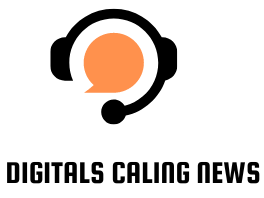Decoding the Mystery: How to Tell If Someone Has Blocked Your Number

In this digital age, communication has evolved beyond face-to-face interactions. Mobile phones have become an integral part of our daily lives, connecting us with friends, family, and colleagues at the touch of a button. However, what happens when that seamless connection is disrupted? If you’ve ever wondered whether someone has blocked your number, you’re not alone. In this article, we’ll explore the signs that may indicate you’ve been blocked and provide insights into the world of blocked calls.
Understanding Call Blocking
Before delving into the indicators of a blocked number, it’s essential to understand how call blocking works. When someone blocks your number, it essentially means that your calls and messages are prevented from reaching their phone. This feature is commonly used to avoid unwanted communication or to maintain privacy. While call blocking is a useful tool, it can leave the blocked party in the dark, wondering if their messages are being received or if their calls are being ignored.
Indicators that You’ve Been Blocked
- Straight to Voicemail: One of the classic signs that you may have been blocked is when your calls go straight to voicemail every time you attempt to make contact. However, it’s important to note that this alone isn’t conclusive evidence, as individuals may intentionally send all calls to voicemail for various reasons.
- No Message Delivery: If your messages are no longer being delivered, it could be an indication that you’ve been blocked. Modern messaging apps usually show a status indicating whether a message has been sent, delivered, or read. If your messages consistently remain in the “sent” state without progressing to “delivered,” it’s worth considering the possibility of being blocked.
- Unanswered Calls: While it’s normal for calls to occasionally go unanswered, a pattern of unanswered calls might suggest that something is amiss. If you notice a sudden change in behavior, especially if the person used to answer your calls regularly, it could be a sign that you’re now on the blocked list.
- No Online Presence: In today’s connected world, many people are active on social media and messaging apps. If someone has blocked your number, you might notice a lack of online activity from them. This could mean that they are intentionally avoiding any form of communication with you.
- Profile Changes: In some cases, individuals who have blocked your number may also unfriend or unfollow you on social media platforms. Keep an eye on any changes in your online connections to gather additional clues about whether you’ve been intentionally cut off.
- Call Duration Information: On some smartphones, the call log may provide additional information about the call duration. If your calls consistently show very short durations, it could suggest that the calls are being quickly rejected or sent to voicemail, a behavior often associated with blocking.
- Testing with Another Number: An effective way to confirm if you’ve been blocked is to test with another number. If your calls and messages go through to the person from a different number, it strengthens the likelihood that your original number has indeed been blocked.
- Sudden Silence: Perhaps one of the most intuitive indicators is a sudden silence from the other party. If the person was once communicative and has now gone silent without any apparent reason, it’s worth considering the possibility of being blocked.
Dealing with the Uncertainty
Discovering that you may have been blocked can be disheartening, and it’s essential to approach the situation with empathy and understanding. People block numbers for various reasons, and it doesn’t necessarily reflect a personal failing on your part. If you suspect you’ve been blocked, it’s crucial to respect the other person’s boundaries and not engage in persistent attempts to contact them.
Communication is a two-way street, and both parties deserve a sense of autonomy and control over their interactions. Instead of dwelling on the uncertainty, consider focusing on open communication when possible. If the relationship is significant, having an honest conversation about any issues or concerns may help to clarify the situation.
Conclusion
The world of blocked numbers and silent calls can be puzzling and sometimes even frustrating. While the signs mentioned above may indicate that you’ve been blocked, they are not foolproof, and there could be other explanations for changes in communication patterns. It’s essential to approach such situations with sensitivity and understanding, recognizing that people have different reasons for managing their communication channels.
If you find yourself on the receiving end of a block, consider using the experience as an opportunity for self-reflection. It’s an opportunity to evaluate the dynamics of the relationship and, if necessary, make adjustments for healthier communication in the future. Ultimately, navigating the digital landscape of blocked numbers requires a balance of respect, communication, and an understanding that each person’s preferences and boundaries may differ.
: How can I tell if someone has blocked my number? A1: There are several indicators that may suggest someone has blocked your number. These include calls going straight to voicemail, messages not being delivered, a lack of online presence, and changes in the person’s social media connections.
Can calls going straight to voicemail be a definite sign of being blocked? A2: While calls going directly to voicemail can be a sign, it’s not definitive proof. Some individuals intentionally set their phones to send all calls to voicemail. However, when coupled with other indicators, such as unanswered messages and a lack of online activity, it strengthens the case.
Why might my messages not be delivered if someone blocked my number? A3: When your messages are not being delivered, it could indicate that you’ve been blocked. Blocking a number often prevents messages from being received, and this behavior is typical across various messaging apps.
What if the person simply isn’t answering my calls? Does that mean I’m blocked? A4: Not necessarily. People may miss calls for various reasons, including being busy or having their phone on silent. However, if there’s a consistent pattern of unanswered calls and other indicators align, it may suggest you’ve been blocked.
Can a lack of online presence be attributed to being blocked? A5: Yes, it’s possible. If someone has blocked your number, they might also avoid online interactions with you. This can include unfriending or unfollowing on social media platforms and a general reduction in online communication.
Are there ways to confirm if I’ve been blocked? A6: Testing with another number is a common method to confirm whether you’ve been blocked. If your calls and messages go through from a different number, it adds weight to the possibility that your original number has been blocked.
Is it advisable to confront someone if I suspect they’ve blocked me? A7: Confrontation may not be the best approach. Instead, consider open and honest communication if the relationship is significant. Respect the other person’s boundaries and try to understand their perspective.
Can a sudden change in communication patterns indicate blocking? A8: Yes, a sudden silence or change in communication patterns, especially if the person was previously responsive, may be an indicator of being blocked. However, it’s essential to consider other factors before drawing conclusions.
How can I deal with the uncertainty of being blocked? A9: Dealing with uncertainty can be challenging. It’s crucial to approach the situation with empathy, recognize that people have different communication preferences, and consider focusing on open communication when possible.
Is being blocked a reflection of a personal failing? A10: No, being blocked does not necessarily reflect a personal failing. People block numbers for various reasons, and it’s essential to respect their decision while also taking the opportunity for self-reflection and potential relationship adjustments.






